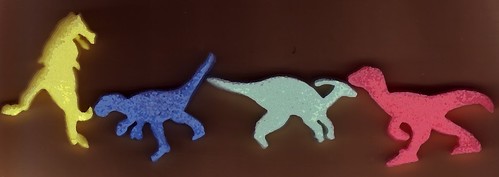
Maddening or enlightening, Harper's monthly magazine is always worth a read. And you never know what you will learn about the world around you. Take the current issue (October 2008), where Arthur Krystal offers "The Long Goodbye: Notes on a never-ending decade" which purports to look at the sixties (while addressing Gerad J. DeGroot's The Sixties Unplugged) and may in fact do so . . . if you think the the earth was then populated by one woman for every 100 men.
Starting with his first paragraph, Krystal makes like James Brown singing, "This is a man's world." Over and over. DeGroot is the only male that has to be mentioned. But Krystal finds time for many, many more. In his essay, he name checks males repeatedly.
1) Barack Obama
2) Jeremiah Wright
3) Wright
4) Wright
5) Wright
6) Wright
7) George Wallace
8) Lyndon Johnson
9) Toad Gitlin
10) H. Rap Brown
11) Lyndon Johnson
12) Martin Luther King Jr.
13) Robert Kennedy
14) Morris Dickstein
15) Nixon
16) Gitlin
17) Che, Lennon, Kennedy, King, Lumumba*
18) Malcolm X, Leary, Hoffman, Hendrix, Dylan, Dutschke, Muhammad Ali*
19) Christopher Ricks
20) Bob Dylan
21) Christopher Ricks
22) Leary
23) Hendrix
24) Ali
25) Jimi
26) John [Kennedy]
27) Robert Kennedy
28) Nixon
29) Frantz Fanon
30) Fonzie [TV character]
31) Blake
32) Che
33) William McGill
34) Tom Hayden
35) Allan Bloom
36) Spiro Agnew
37) Agnew
38) William Safire
39) Dick Armey
40) Norman Mailer
41) Jane Austen
42) Bach
43) Keats
44) John F. Kennedy
45) Salinger
46) Camus
47) Sartre
48) Ginsberg
49) Brando
50) James Dean
51) Kennedy
52) Tom Hayden
53) Johnson
54) Hayden
55) Terry Anderson
56) Robert Kennedy
57) Gitlin
58) Dominick Cavallo
59) Jerry Ruben
60) Mao
61) Che
62) Lenin
63) Henry Kissinger
64) Dr. Benjamin Spock
65) Kissinger
66) Taylor Branch
67) Zorba the Greek
68) Henry Kissinger
69) Herbert Marcuse
70) Norman O. Brown
71) Charles Reich
72) R.D. Laing
73) Yossarian [book character, Catch 22]
74) Chief [book character, One Flew Over the Cuckoo's Nest]
75) Philip de Broca
76) Peter Weiss
77) Betty Friedan
78) [Clark] Gable
79) [Gary] Cooper
80) [Robert] Mitchum
81) [Humphrey] Bogart
82) Woody Allen
83) Richard Dreyfuss
84) Jack Nicholson
85) Robert Jordan
86) Alex Portnoy [book character, Portnoy's Complaint]
87) Philip Marlowe [book character]
88) Robert Altman
89) Elliott Gould
90) Nixon
91) Tony Manero [movie character]
92) Bee Gees
93) Robert Kennedy
94) Eugene McCarthy
95) Hubert Humphrey
96) George McGovern
97) Lyndon Johnson
98) Obama
99) George F. Will
(17) and (18) are starred and the reason is that Arthur's actually quoting DeGroot but Krystal made the decision which sections of the book to quote and which not to. The essay names checks at least 99 times. How many women were mentioned? Two.
The sixties is the 'youth decade' and, hate to break it to Krystal, neither Betty Friedan nor Jane Austen were part of the 'youth movement.'
Nor was Bach. But what you have above is very revealing. Fonzie? The Bee Gees? John Travolta's character in Saturday Night Fever?
Where are the women?
Even when he turns to fictional representatives, it's all men.
How did he not notice that? Did he intend all along to render women invisible?
He certainly sets out to be 'fair' to the right by including George Will and William Safire. But 'fairness' doesn't enter the equation when it comes to women.
Or did he think tossing Jane Austen and Betty Friedan into the mix was a huge favor?
Reading the essay, the impression anyone new to the 'sixties' would be left with is that women didn't do a damn thing -- in real life, on the page, on the screen.
Arthur Krystal isn't interested in writing about the 'sixties,' he's interested in writing about himself. While all writing is, to a degree, self-writing, it's equally true that when your work results in the record Krystal's essay has, you can't be surprised when people rightly argue "sexism." Krystal makes sure to at least give lip service to African-American (males) and that's hardly surprising since racism is rightly seen as a wrong while sexism . . . just happens.
Krystal appears to accept the 'sixties' as being defined from the assassination of JFK to the resignation of Tricky Dick Nixon. Strange because we can think of a number of women active during that period, making strides: Gloria Steinem, Janis Joplin, Marta Cotera, Grace Slick, Robin Morgan, Michelle Phillips, Dolores Huerta, Cass Elliot, Aretha Franklin, Billie Jean King, Shirley Chisholm, Tecihtzin, Bella Abzug, Hannah Arendt, Lily Tomlin, Mary Crow Dog, Kathie Sarachild, Sharon Maeda, Shana Alexander, Kate Millett, Nancy Chodorow, Alix Kates Shulman, Vilma Martinez, Clara Eraser, Anais Nin, Anne Sexton, Anna Mae Aquash, Tillie Olson, Maxine Hong Kingston, Shirley MacLaine, Judy Chicago, Paty Mink, Jo Freeman, Evelyn Yoshimura, Maxine Kumin, Simone de Beauvoir, Frances M. Beal, Susan Stern, Rita Mae Brown, Holly Near, Ellen Willis, Gloria Anzaldua, Miya Iwataki, Shulamith Firestone, Gerda Lerner, Mary Daly, Naomi Weisstein and Eleanor Holmes Norton. There were many, many more.
Some of the names listed may be familiar to you, some may not ring a bell. You can thank writers like Arthur Krystal for the confusion. Name dropping his way through history, he omits women and that's one of the many ways women are rendered invisible. And it's always been that way. He made the decision who to include and who to exclude. Those decisions build a 'canon' and, time and again, just by 'chance,' women are rendered invisible.